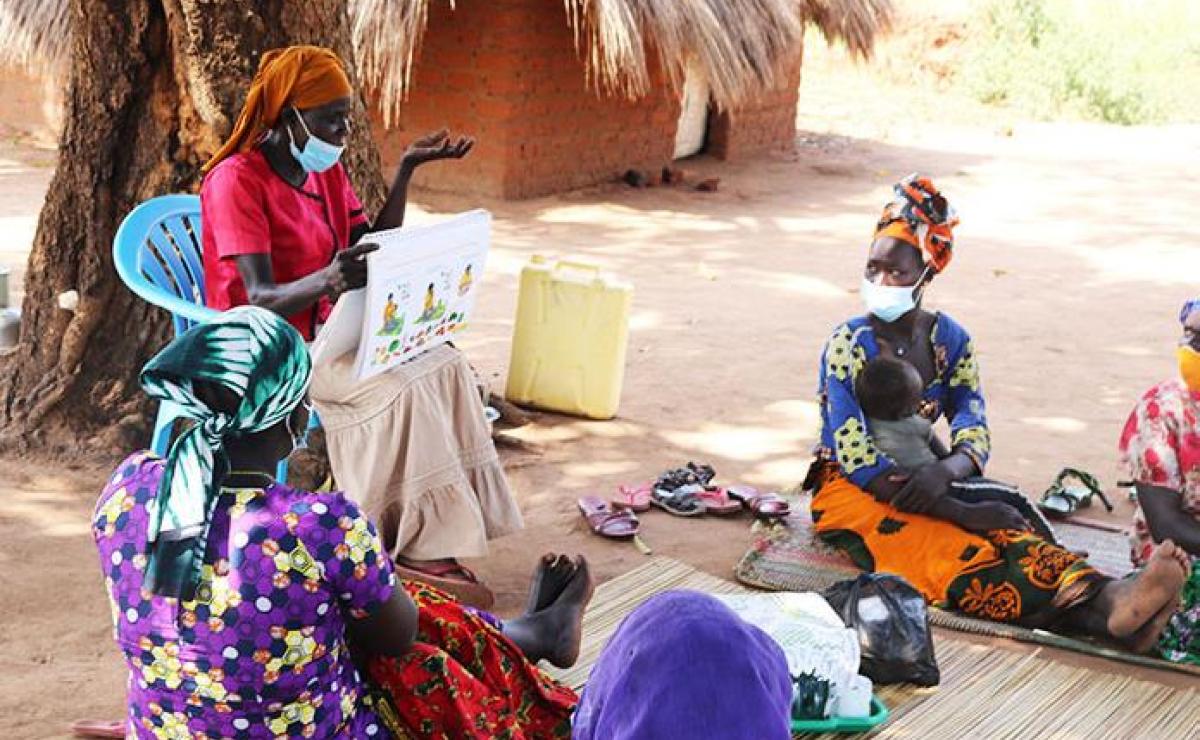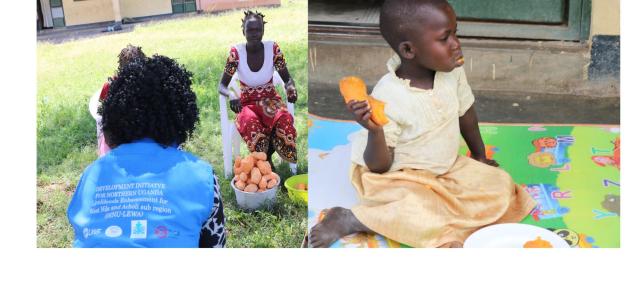The Care group approach improves child health and nutrition in host communities

In Northern Uganda’s Obogubu village is Aishya Baako, one of the trained volunteers who teach essential practices for good hygiene and infant care in her community. Subsequently, the initiative has improved healthcare-seeking behaviours decreased malnourished children and hygiene-related diseases. Health promotion messages focus primarily on nutrition in exclusive breastfeeding for the first six months, appropriate complementary feeding, water treatment, sanitation and hygiene.
Others are; danger signs during pregnancy and among children, preventative care, and safe birth practices. Using a combination of group meetings and home visits, the 35-year-old shares informatio on nutrition and family planning with her cohort of five beneficiary mothers.
Each of the five mothers from households with a young child or pregnant woman within a target community are also tasked to persuade five others in their social networks and neighbourhood to adopt new health behaviours and make a group of 30 caregivers. The goal is to connect with every pregnant and lactating mother in the target region to promote health behaviours and those who influence her, like relatives and friends.
“In our teachings, we talk of complementary feeding for children six months to 2years,” Ms Baako says. “At that age, the breast milk is not enough anymore, “the mother of five adds. To ensure that the mothers feed their babies in food rich in all nutrients, Ms Baako explains that they add eggs groundnut paste and mix it to become soluble in the child and prevent malnourishment. Ms Baako is one of the local health promoters trained by the Livelihoods Enhancement for West Nile and Acholi (LEWA) consortium led by the Lutheran World Federation (LWF) to promote Improved Maternal, Child Health and Nutrition in Acholi and West Nile regions.The consortium under Development Initiative for Northern Uganda (DINU) program is composed of Dunchurch Aid (DCA), the Uganda Pentecostal Medical Bureau (UPMB), both non-government organisations and Mukwano Group of Industries, a private company.
The European Union funds the two-year project running 2020-2022 in collaboration with the government of Uganda through the Office of the Prime Minister. Over 46 per cent and 37 per cent
of children are stunted in Acholi and West Nile regions, respectively, according to the DINU scoping study Report 2017.In response, the care group approach is one of the interventions to improve nutrition, household income, and food security in the sub-regions in the ten districts of Adjumani, Obongi, Moyo, Yumbe, Maracha, Koboko, Arua, Terego, Madi-Okollo and Lamwo where the project is implemented. “I also learnt how to prepare nutritious and thicker porridge for my children,” says the 35-year-old mother. “They look healthier than before and no longer fall sick”.
Orange fresh sweet potato vines
For effectiveness and easy access, LWF supports Orange fresh sweet potato vines among other green vegetable seeds to vulnerable households for multiplication through backyard gardening. Orange fleshed sweet potatoes are rich in Vitamin A, which contribute to the nutritional needs of young children and pregnant and breastfeeding women as a component of a balanced diet.“It is [orange fleshed] sweet potatoes are delicious,”23-year-old Patricia Acan, a mother of two in Lamwo districts, says. “Even without sauce, the children can eat it,” she approves.


